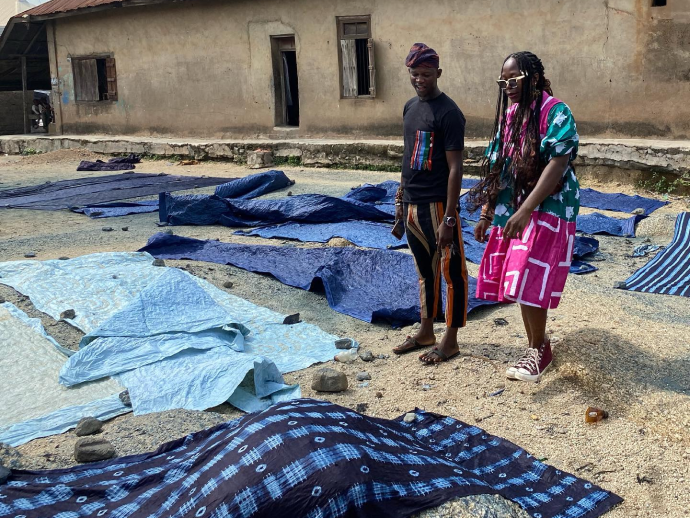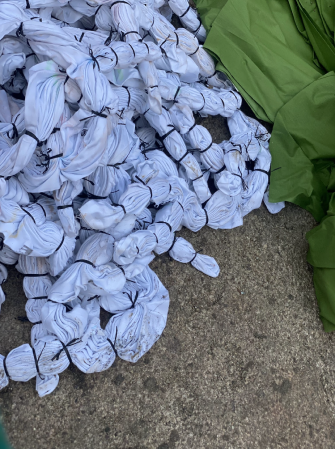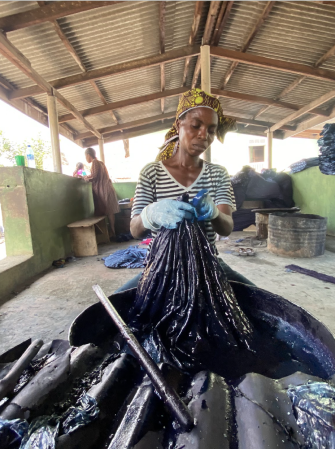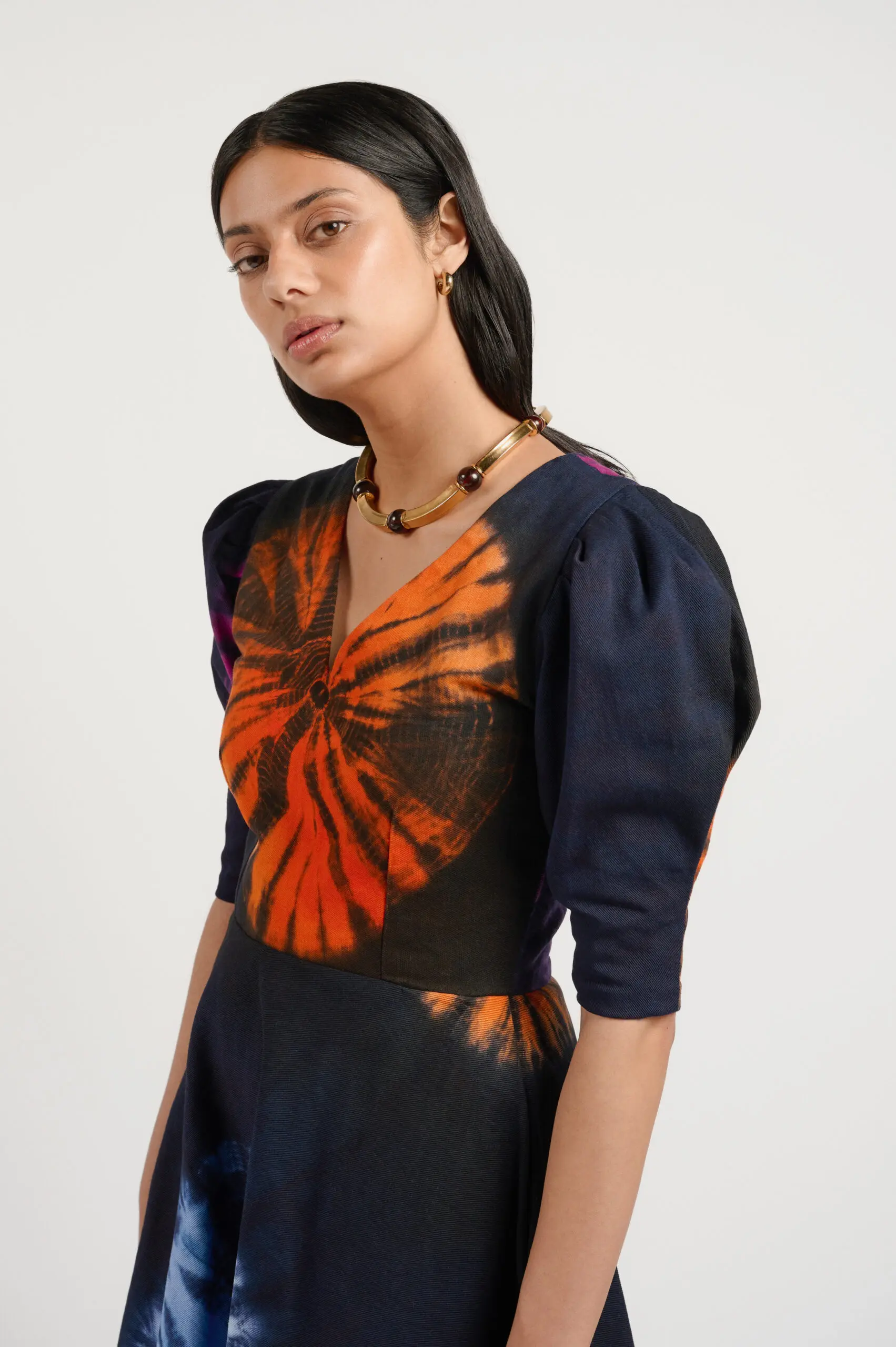Join our email list to receive 10% off your first purchase
© 2023 Busayo All Rights Reserved
For the experience of traditional Yoruba life and what is at stake as Nigerians embrace modernity with gusto, look no further than Abeokuta.
JAN 08, 2023 DISCOVER NIGERIA

As I’ve traveled, I’ve come to discover that there are certain cities in the world that have a particular pull on me. I don’t know what it is but some places, like New Orleans or Hoi An, Vietnam, have a strange kind of seductive atmosphere that make them unforgettable. Abeokuta in Nigeria is a town like that. It is one of the most beautiful towns in Nigeria. There are multiple iterations of man’s vain attempt to force the landscape into submission. That battle between man and nature ended in a detente that has lasted at least a century. When you look out over the town from high points, there is a sea of rusted tin roofs beneath you, a canopy of orange. There are also giant rocks sitting on top of (fully functional) houses, houses carved inside rocks, house on top of rocks… The giant rocks are where Abeokuta gets its name, it literally means, ‘Under the Rock.’
Abeokuta has also given us some of Nigeria’s greatest minds – Funmi Ransome-Kuti (Fela’s mother and one of Nigeria’s freedom fighter), Fela, Wole Soyinka. Egba minds who radically showed us what was possible through their work and lives.
My love affair with this town became an obsession as I began my work with textiles; there is a rich history of creating textiles in Abeokuta. The dyeing tradition of Adire (‘to tie and dye’ in Yoruba) in Abeokuta goes back to nineteenth century, with an industry nurtured by a stronghold of Egba women and although the tools have changed from feathers to stamps, dyes have evolved from organic to synthetic in many parts of Nigeria, including Abeokuta. Abeokuta remains a bastion of traditional dyeing, in Abeokuta, we see techniques and methods that are embedded with generations of technology in the women of Abeokuta have nurtured and sustained this fertile industry, adapting to market pressures including intervention of colonial power to sabotage local textile industries with cheap imports to cheap Chinese imports. The sea of traditional indigo fabrics laid in the hot sun for drying throughout Abeokuta confirms a vibrant textile trade. For the experience of traditional Yoruba life and what is at stake as Nigerians embrace modernity with gusto, look no further than Abeokuta.
Modern day Abeokuta is at the crossroads of modernity and tradition, a town where old traditional homes have been summarily demolished to build new roads and yet the traditional way of doing things still feels palpable. This is the town I load up on my Nigerian goodies, my honey, almost jet black with an earthy flavor unlike any honey I had ever tasted, my Osun, the camwood powder that gives my skin a certain sheen, I get my Ose Dudu (black soap) mixed, no Lagos soap for me and more textiles than I can fathom. I’m obsessed with the quality of the soap and the way my soap lady guards the exact recipe of the particular mixture she makes. The Ofada rice (local rice)is served to you wrapped in banana leaves and your hands are your utensils.


I return to Abeokuta when I need to reconnect to the work, to immerse myself in the history of textile making, to immerse myself in our tradition of making textiles and fabrics. To return to the ways that we have always made things and the rich culture that gave birth to all this beauty.
For the experience of traditional Yoruba life and what is at stake as Nigerians embrace modernity with gusto, look no further than Abeokuta.
JAN 08, 2023 DISCOVER NIGERIA

As I’ve traveled, I’ve come to discover that there are certain cities in the world that have a particular pull on me. I don’t know what it is but some places, like New Orleans or Hoi An, Vietnam, have a strange kind of seductive atmosphere that make them unforgettable. Abeokuta in Nigeria is a town like that. It is one of the most beautiful towns in Nigeria. There are multiple iterations of man’s vain attempt to force the landscape into submission. That battle between man and nature ended in a detente that has lasted at least a century. When you look out over the town from high points, there is a sea of rusted tin roofs beneath you, a canopy of orange. There are also giant rocks sitting on top of (fully functional) houses, houses carved inside rocks, house on top of rocks… The giant rocks are where Abeokuta gets its name, it literally means, ‘Under the Rock.’
Abeokuta has also given us some of Nigeria’s greatest minds – Funmi Ransome-Kuti (Fela’s mother and one of Nigeria’s freedom fighter), Fela, Wole Soyinka. Egba minds who radically showed us what was possible through their work and lives.
My love affair with this town became an obsession as I began my work with textiles; there is a rich history of creating textiles in Abeokuta. The dyeing tradition of Adire (‘to tie and dye’ in Yoruba) in Abeokuta goes back to nineteenth century, with an industry nurtured by a stronghold of Egba women and although the tools have changed from feathers to stamps, dyes have evolved from organic to synthetic in many parts of Nigeria, including Abeokuta. Abeokuta remains a bastion of traditional dyeing, in Abeokuta, we see techniques and methods that are embedded with generations of technology in the women of Abeokuta have nurtured and sustained this fertile industry, adapting to market pressures including intervention of colonial power to sabotage local textile industries with cheap imports to cheap Chinese imports. The sea of traditional indigo fabrics laid in the hot sun for drying throughout Abeokuta confirms a vibrant textile trade. For the experience of traditional Yoruba life and what is at stake as Nigerians embrace modernity with gusto, look no further than Abeokuta.
Modern day Abeokuta is at the crossroads of modernity and tradition, a town where old traditional homes have been summarily demolished to build new roads and yet the traditional way of doing things still feels palpable. This is the town I load up on my Nigerian goodies, my honey, almost jet black with an earthy flavor unlike any honey I had ever tasted, my Osun, the camwood powder that gives my skin a certain sheen, I get my Ose Dudu (black soap) mixed, no Lagos soap for me and more textiles than I can fathom. I’m obsessed with the quality of the soap and the way my soap lady guards the exact recipe of the particular mixture she makes. The Ofada rice (local rice)is served to you wrapped in banana leaves and your hands are your utensils.


I return to Abeokuta when I need to reconnect to the work, to immerse myself in the history of textile making, to immerse myself in our tradition of making textiles and fabrics. To return to the ways that we have always made things and the rich culture that gave birth to all this beauty.
Join our email list to receive 10% off your first purchase
© 2023 Busayo All Rights Reserved
Join our email list to receive 10% off your first purchase
© 2023 Busayo All Rights Reserved

Join our email list to receive 10% off your first purchase